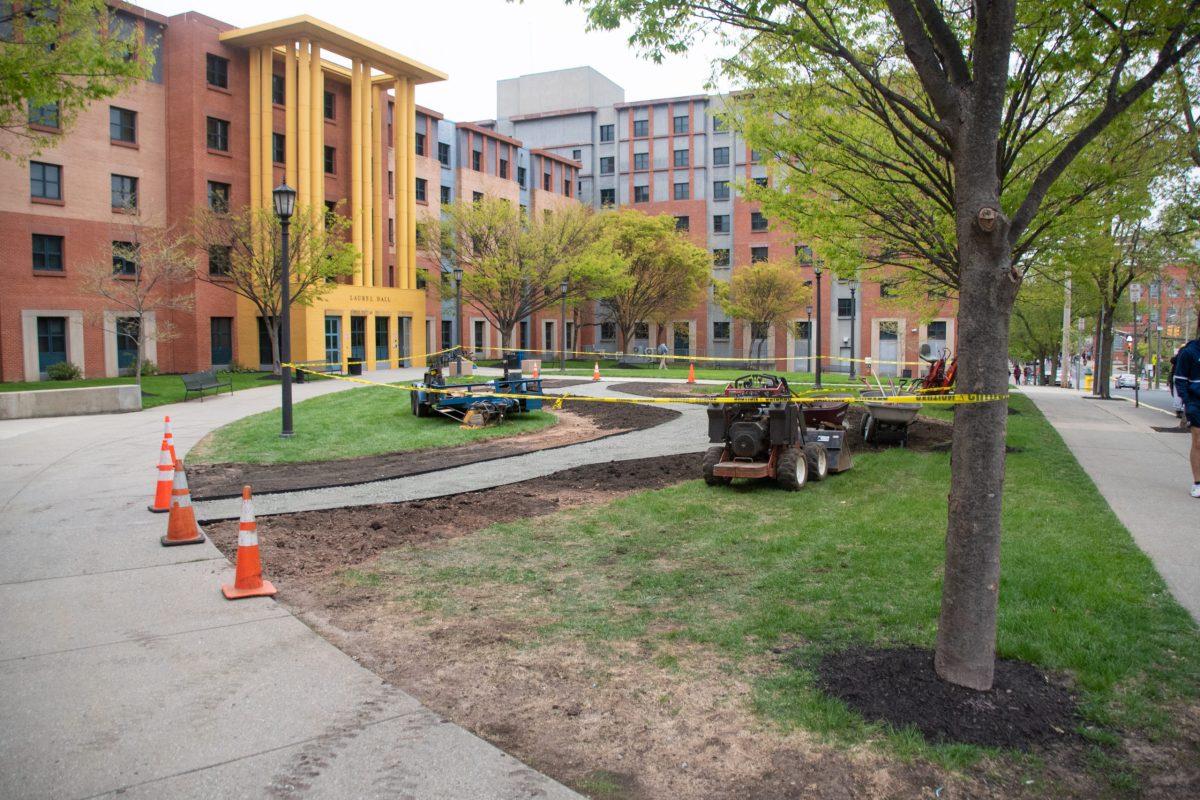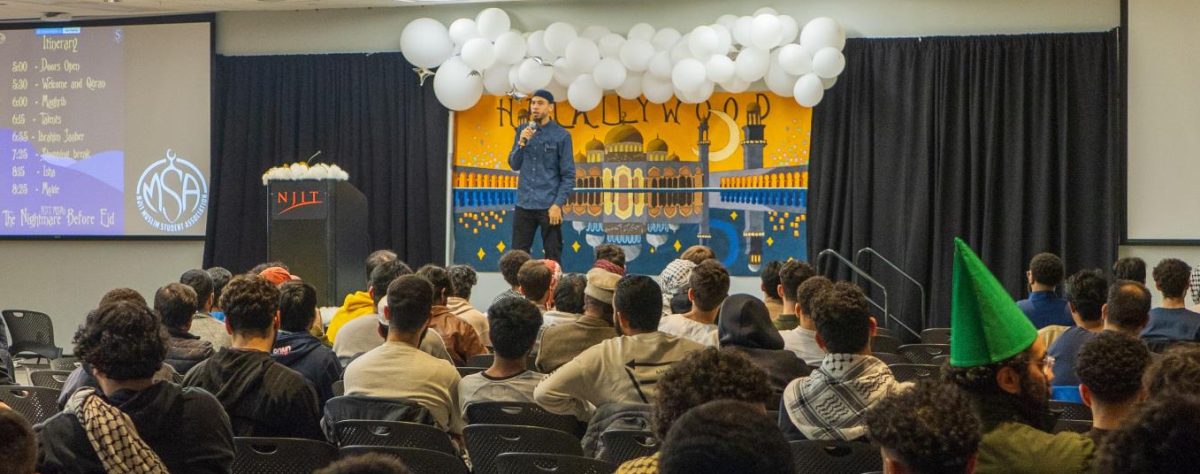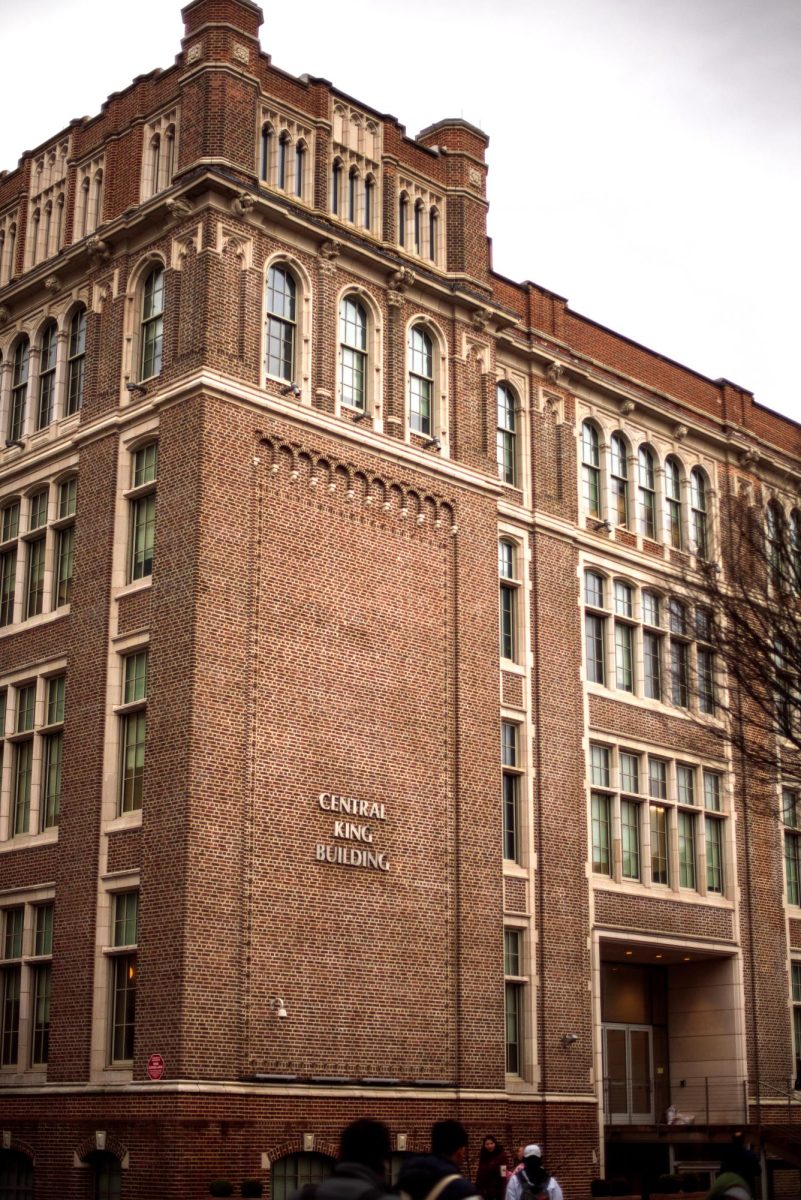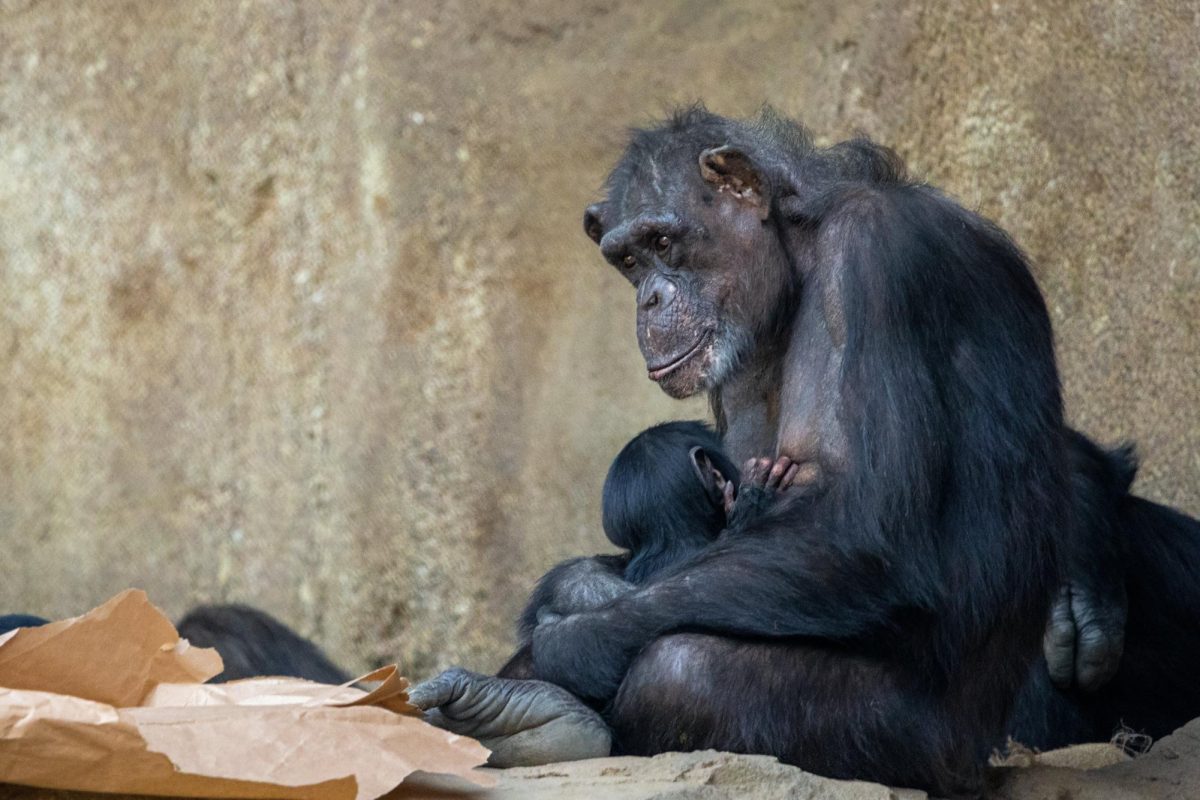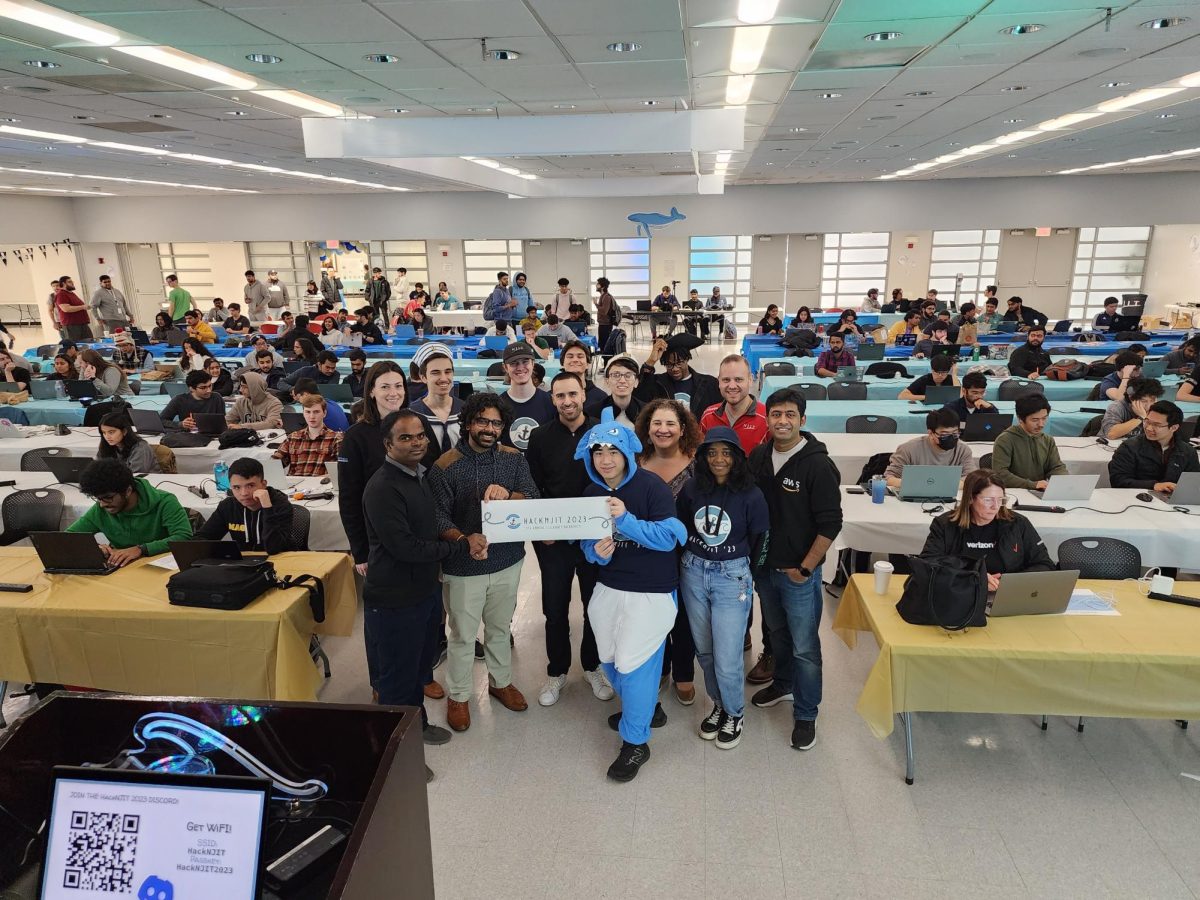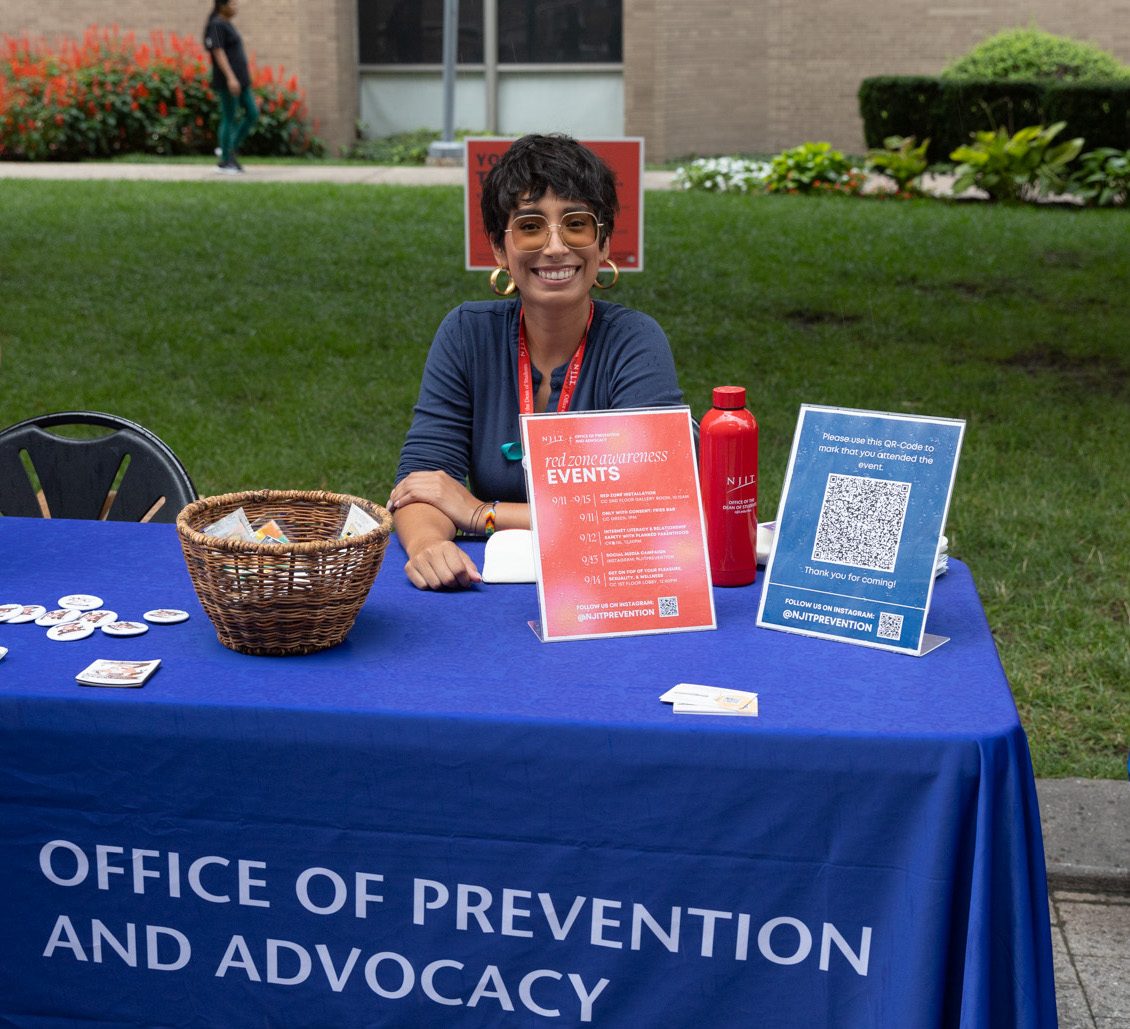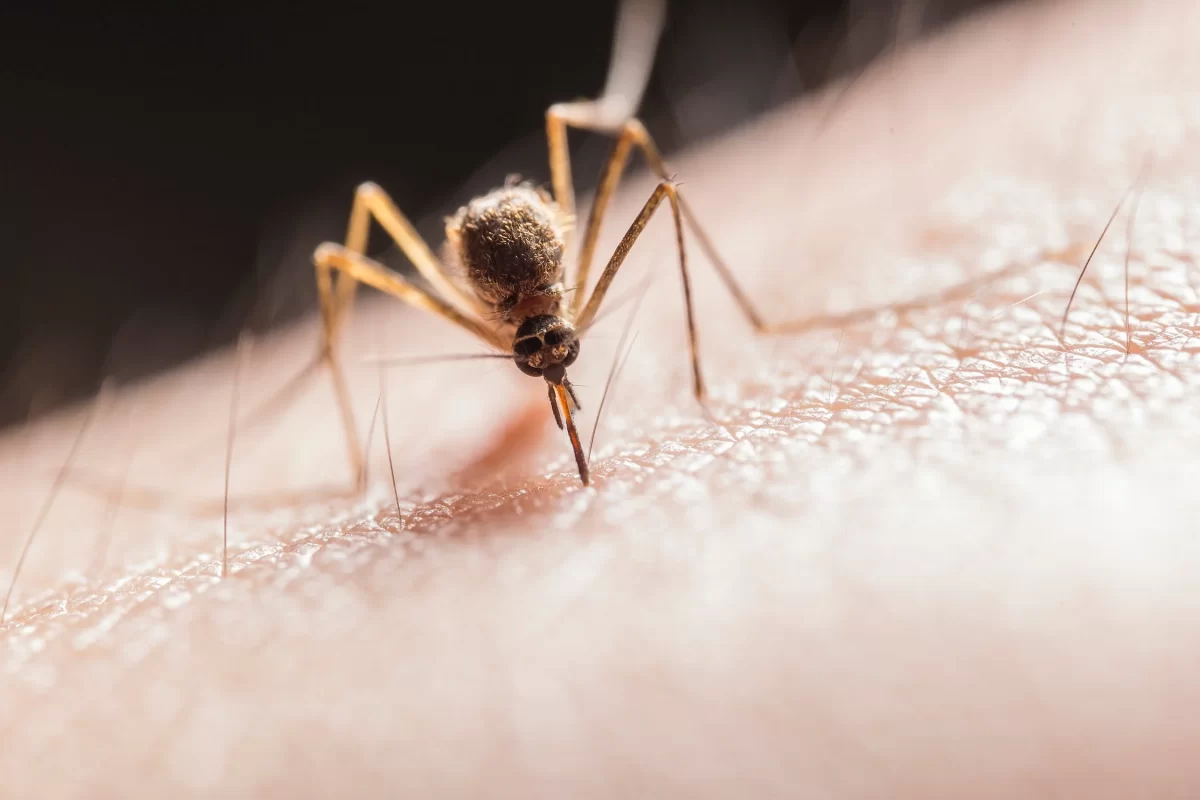In the latest example of NJIT’s commitment to increasing biodiversity, the planting of an urban Food Forest in front of Laurel Hall commenced on Wednesday, April 27. The project is the result of a years-long collaboration between Dr. Maria Stanko, senior university lecturer, and the Albert Dorman Honors College in addition to NJIT’s administration.
An alumnus of NJIT and the Honors College, Sarabjit Singh ‘02 is a donor for the Faculty Fellowship. While in college and during the following years, he felt strongly about the sustainability and quality of food grown in the United States, particularly in Newark, and became involved in the process of setting up the Faculty Fellowship.
As a Faculty Fellow, Dr. Stanko teaches the Honors course “Food for a Hot Planet”, or BIOL 498. This course tackles the intersection of food systems and climate change, and aims to increase awareness of the growth, acquisition and consumption of food in the context of the changing climate.
The course was first offered just last year in Spring 2021. Stanko laid out the concepts and goals of the course but planned for students to design the final project as they learned more about the topic. “I wanted it to be a very student-driven course, so that we could decide as a group exactly what the nature of the project would be,” she said.
At the end of the Spring 2021 semester, the students of BIOL 498H had created a proposal for a food forest composed of species native to New Jersey on campus. This process involved in-depth research into the plant and fruit species that grow here and their care requirements in addition to creating a budget, benefits list and diagram for the proposed plot of land.
Over the summer of 2021, Shafia Talat, a then-junior biology major, took the idea further by participating in the Honors Summer Research Institute. She was able to refine the class’s ideas for the food forest and created an associated website. As a result, the proposal was presented to the NJIT Board of Trustees and approved.
The current students in the course have taken it from there — this semester, they worked on perfecting the species list as well as contacting a landscape artist to design the forest elements around a path in front of Laurel Hall in order to create an immersive experience. Currently, they are each designing an educational sign for the forest and working to develop a protocol for regular surveys of the plot.
The food forest is being planted in front of Laurel Hall in a quarter-circle shape with a path that runs through it. Some of the species include honey locust trees, American plum trees, American hazelnuts and numerous shrubs including elderberries, raspberries, blueberries, roses and structural shrubs. Ground cover plants such as strawberries and mint will be used to fill up the remaining space. Rather than a traditional orchard requiring upkeep, the forest is designed to be a miniature ecosystem.
This was also an important proposal for Dean of the Honors College Louis Hamilton, as it aligned with the sustainability initiatives as the pollinator garden behind Honors Hall, the planting alongside the side of Eberhardt Hall and the planned rooftop garden.
“The food forest will be a teaching and research tool at first, and as it matures, we absolutely see the goal as becoming a resource to the community,” said Hamilton. When the forest is complete, any visitor who wants to sample the fruits and vegetables will be free to do so.
“Everything that we’re planting is native and a perennial species,” said Stanko. “And every species will provide some form of edible food.” Additionally, along the path, there are plans to include planters with annual vegetable species traditionally found in gardens.
The goal of the food forest is to create an immersive learning experience in which students and visitors can walk through a bright and colorful space while reading about native plants and picking their fruit on the spot.
There are many future plans including expanding to the entire semicircle in front of Laurel Hall and other areas on campus. “The goal is to mimic the natural process of succession, so that the area will develop over time,” noted Stanko.
In terms of the lawn that will be replaced, Hamilton believes that the forest will be much more ecologically friendly. “Grass is a monoculture and causes the largest non-agriculture usage of water. Additionally, it doesn’t significantly cool down the city.” However, the differing root systems and growth rates of the forest provide an example of how to decrease flooding and storm runoff. “The area will become a much livelier space,” he added.
The food forest forms part of NJIT’s overall sustainability initiative, which was started with the annual biodiversity surveys of flora and fauna on campus in Honors First-Year Seminar. The initiative has grown to include the Urban Ecology Lab of the biology department, which focuses on issues such as species loss, the heat island effect — hotter temperatures in cities — and social and health concerns in Newark.
Ultimately, the goal of this endeavor is to build a more sustainable, healthy and thriving ecosystem in the heart of the city.
























